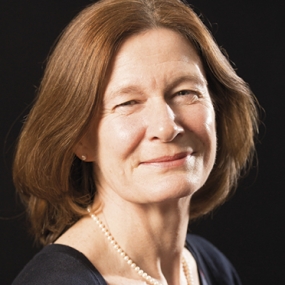Survey fatigue? Your response might be crucial

Consultant Anaesthetist and RCoA Vice-President

Policy and Patient Information Manager, Royal College of Anaesthetists
COVID-19 has shone a light on the critical role of anaesthesia and intensive care at a time of crisis. This has been an important moment for raising the profile of the specialty with members of the public and the media: never before have spokespersons from the College and the Faculty of Intensive Care Medicine been in such great demand with high profile TV and radio programmes. However, in order to advocate on behalf of the specialty with key decision makers, we at the College also needed hard evidence and in-depth knowledge of what was actually happening on the frontline around the country.
That’s why between April and July 2020 the College ran a series of surveys with the aim of getting a view from anaesthetists working during the COVID-19 pandemic. Thank you for taking the time to send us your thoughts.
We ran our fist survey well into April, at the height of activity. At that time it was clear from stories in the media that the availability of PPE and testing were significant concerns, as was the availability of drugs needed in intensive care and anaesthetics.
This was confirmed by the findings from the survey, which revealed that over two thirds of respondents felt concerned for their health because of a lack of adequate PPE, nearly 40% were unable to access the testing they needed and 40% were not confident they would have had sufficient supply of anaesthetic drugs over the next month.
The College was also concerned by the impact of the pandemic on the physical and mental wellbeing of its members and the first survey revealed that 40% of respondents had felt mentally unwell as a result of additional COVID-19 related stress, while over a third had felt physically unwell.
We conducted the second survey in May when the UK was just over the peak and the number of cases was starting to come down. This was also the time when NHS England and Improvement announced plans to restart elective surgery, while still managing COVID-19 patients, to tackle the huge backlog of delayed operations.
The findings of this second survey revealed that one month on availability of PPE, anaesthetic drugs and testing still remained issues of concern, despite improvements in supply chains. More importantly our members were still experiencing sustained pressures, which were continuing to have an impact on their physical and mental wellbeing and their capacity to return to routine activity.
Over a third of respondents told us they had a low degree of confidence in their hospital’s preparedness to restart some planned activity.
We decided to explore the issue of restoration of services further in our third and last survey conducted in July and asked our members to rate their hospital’s preparedness against the Strategy for restarting planned surgery in the context of the COVID-19 pandemic produced by the College, Association of Anaesthetists, Intensive Care Society and Faculty of Intensive Care Medicine.
The findings revealed that two months after the peak 44% of respondents were still not confident in their hospital’s ability to provide planned surgery safely whilst also managing COVID-19 demand during future surges, and that nearly two-thirds of respondents continued to suffer mental distress because of additional work related stress due to COVID-19.
So, what have we done with the findings from the surveys?
Firstly, we have provided targeted information and support to our members through the joint icm-anaesthesia hub.
Secondly, we have used our ability to provide hard evidence regarding the pressures that our members have experienced throughout the pandemic to bring the College into conversations with key decision makers at the highest level. The College President and Vice Presidents attend regular meetings with the Secretary of State for Health and Social Care and with the Chief Medical Officer. Through a strengthened relationship with the NHS’s National Medical Director we were consulted about and included in committees looking at a number of issues on how best to manage the pandemic, for example anaesthetic/ICM drug shortages and supply of ventilators. This allowed us to make the case for the resources anaesthetists need to care for their patients during these challenging times.
Having read this blog we hope that next time you see a request for ‘yet another survey’ pop up in your inbox you will complete it in the knowledge that your contributions will be put to good use and that what you tell us will help support you and represent your views and aspirations where it really matters.
Fiona Donald
Elena Fabbrani
